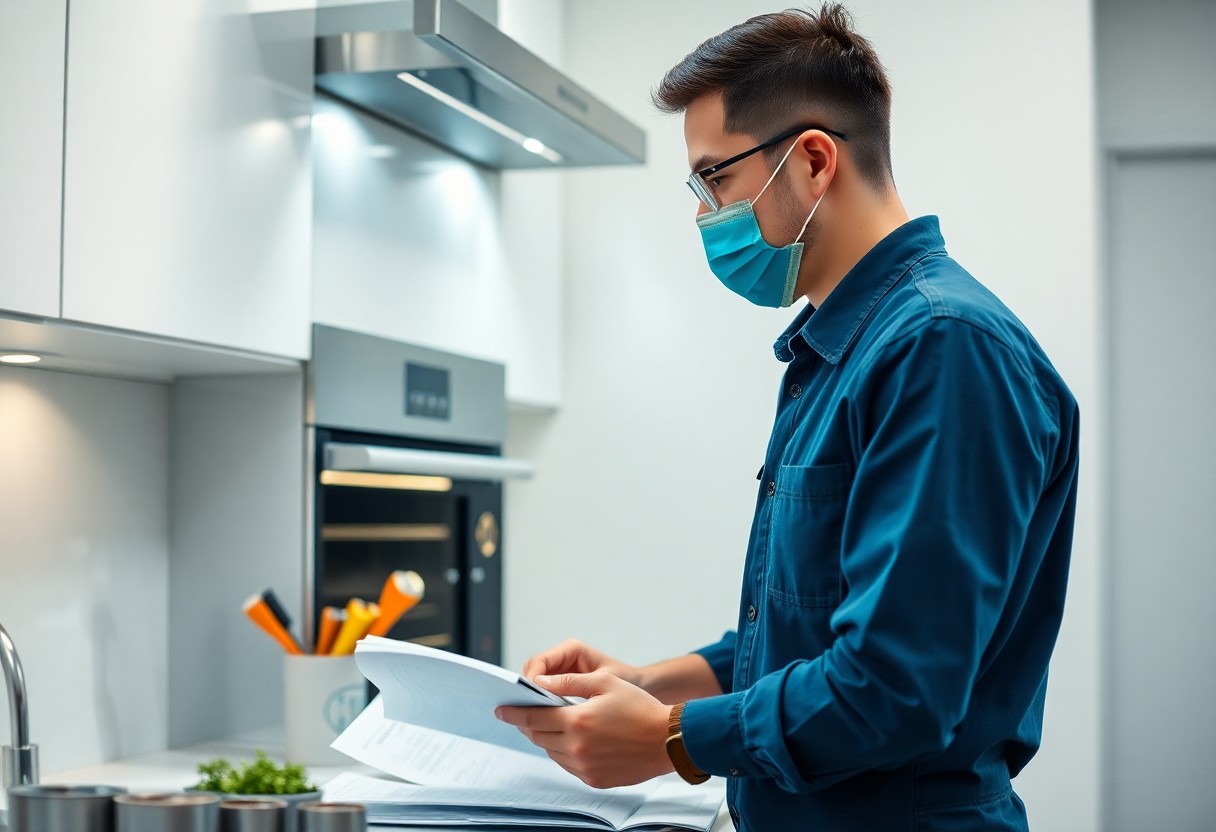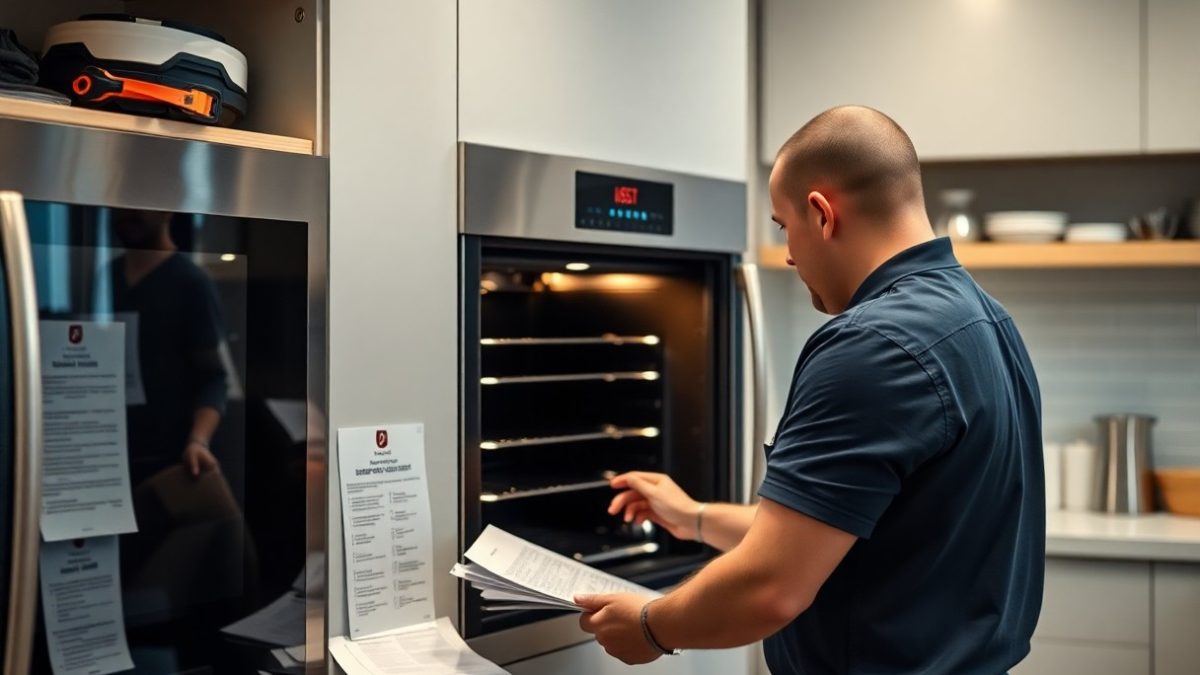
What Subtle Nuances Should Be Acknowledged In Gas Line Inspections Before Installation?
November 11, 2024
What Are The Quixotic Myths Surrounding Gas Vs. Electric Appliance Efficiency?
November 13, 2024Just as you wouldn’t compromise on your appliance’s performance, you shouldn’t overlook the importance of compliance in your installations. Ensuring the palladium of compliance means adhering to safety standards and regulations, which protect not only your investment but also your home and loved ones. In this post, you will learn important steps to follow, from understanding local codes to utilizing certified professionals. By prioritizing compliance, you can enhance the efficiency and safety of your appliance installations.

Understanding Compliance Standards
Before stepping into the specifics of appliance installations, it’s vital to grasp the compliance standards that govern your installations. These standards, developed by regulatory bodies, ensure that appliances are safe, efficient, and environmentally friendly. Familiarizing yourself with these guidelines will help you maintain safety and quality in all your installations, ultimately protecting both you and your clients.
Key Regulatory Bodies
An array of regulatory bodies sets the compliance standards for appliance installations. Organizations like the National Fire Protection Association (NFPA) and Underwriters Laboratories (UL) play a vital role in developing regulations that ensure safety and performance. Understanding which bodies govern your specific appliance installations allows you to align your work with the highest standards.
Importance of Compliance in Appliance Installations
The significance of compliance in appliance installations cannot be overstated. Adhering to established standards minimizes risks, enhances safety, and boosts the efficiency of your installed appliances, ensuring long-term satisfaction for your clients.
Compliance ultimately protects you from potential liabilities while enhancing your reputation as a skilled installer. By ensuring that your work meets or exceeds industry standards, you not only contribute to the safety and reliability of the appliances you install but also cultivate trust and credibility with your clients. This commitment can set you apart in a competitive market, leading to greater business opportunities.
Steps to Ensure Compliance
Some important steps can help you ensure compliance during your appliance installations. Start by conducting thorough research on local codes, engage certified professionals, and maintain proper documentation throughout the process. Staying informed about regulations will not only enhance the safety of your installations but also protect you from potential legal issues in the future.
Thorough Research of Local Codes
On your journey to compliance, it’s vital to familiarize yourself with local codes and regulations governing appliance installations. These guidelines specify requirements for safety, efficiency, and environmental considerations. By understanding these codes, you can avoid potential fines or delays that may arise from noncompliance.
Engaging Certified Professionals
Across the installation process, enlisting the expertise of certified professionals is paramount. These individuals are trained to navigate complex regulation landscapes and ensure that your appliances are safely and efficiently installed, following all necessary requirements.
For instance, a licensed electrician can ensure that your electrical appliances meet code standards, while a certified plumber can address code compliance regarding water and gas installations. Engaging these specialists not only provides peace of mind but also enhances the overall performance of your appliances, ensuring that they operate efficiently and safely in your home or business.
Best Practices for Installation
Assuming you prioritize compliance and safety during your appliance installations, adopting best practices is necessary. Always begin by reviewing installation guidelines provided by manufacturers and relevant local regulations. Proper planning and execution can minimize risks associated with appliance failures while enhancing overall efficiency. Additionally, ensure that your installation crew is adequately trained and knowledgeable about specific appliances to foster successful installations.
Utilizing Quality Materials
Between the selection of materials and the professional installation itself, using quality components can make a significant difference in performance and longevity. Opting for high-grade hoses, cords, and connections minimizes the risk of leaks or failures. This commitment to quality not only enhances your appliance’s efficiency but also reduces future service costs associated with poor materials.
Regular Maintenance and Inspections
Behind every reliable appliance is a routine of regular maintenance and inspections. Investing time in these practices helps you identify potential issues before they escalate into major problems, ensuring your appliances function efficiently over time. Keeping up with maintenance schedules is integral to prolonging the lifespan of your appliances.
Materials used during installation significantly affect the effectiveness of maintenance and inspections. Quality components allow for easier access and better visibility while checking for wear and tear. Regularly scheduled maintenance ensures your appliances operate at peak performance, prevents emergency repairs, and helps you spot any concerns early on. Keeping a log of maintenance activities can aid in tracking performance and compliance for future reference.
Documenting Compliance Efforts
Unlike many industries, the appliance installation sector demands meticulous documentation of compliance efforts. Keeping records not only protects your business but also demonstrates adherence to safety guidelines. For more guidance, check out Electrical Safety Standards – How to Ensure Compliance. By systematically documenting your compliance activities, you foster trust with clients and regulatory bodies alike.
Importance of Record Keeping
One of the key factors in maintaining compliance is consistent record-keeping. This practice allows you to track your installation processes, verify adherence to safety standards, and provide necessary proof in the event of audits or inspections. Good records strengthen your reputation and demonstrate a commitment to quality in your installations.
Creating Compliance Checklists
Compliance checklists serve as effective tools for ensuring that all necessary steps are completed during appliance installations. These lists help you identify regulatory requirements and best practices.
Due to the complexity of safety regulations, creating a comprehensive compliance checklist can significantly streamline your installation process. Start by listing vital safety protocols, equipment specifications, and testing requirements. Incorporating these elements into your checklist not only ensures thoroughness but also provides a clear roadmap for your team, enhancing overall efficiency and compliance in your operations.
Common Compliance Issues
Your appliance installations can be fraught with various compliance issues that can lead to costly repercussions. These might include failure to adhere to local building codes, improper use of materials, and non-compliance with safety standards. Recognizing these problems early can save you time and money, ensuring that your installations meet all necessary regulations and standards without any complications down the road.
Identifying Potential Red Flags
About identifying potential red flags, you should always be on the lookout for signs that indicate non-compliance. Inconsistencies in documentation, the use of outdated materials, or lack of appropriate certifications can signal that your installation may not meet compliance standards. Regular audits and checklists can assist you in identifying these warning signs before they escalate into significant issues.
Solutions for Overcoming Compliance Challenges
Beside regular training for your team, establishing a comprehensive compliance checklist can greatly enhance your approach. This ensures all necessary regulations are understood and followed closely during installations. Engaging a compliance officer or consultant can also provide expertise in navigating complex regulations, giving you confidence in your practices.
Even with the most diligent planning, compliance challenges can still arise. By incorporating comprehensive training programs and developing clear communication channels, you can equip your team to effectively handle any compliance issues. Implementing an ongoing review process, encouraging feedback, and making necessary adjustments will also help reinforce your commitment to compliance, ultimately leading to safer and more reliable appliance installations.
Training and Education
Despite the sophistication of your appliance installations, the commitment to compliance begins with adequate training and education. Ensuring that your team understands the regulatory requirements and safety standards is vital for maintaining a culture of responsibility and adherence to the necessary protocols. By providing comprehensive education, you empower your staff to operate effectively and responsibly within their roles, ultimately safeguarding your business and enhancing your reputation.
Ongoing Staff Training
Above all, ongoing staff training is important to keep your employees updated on industry standards and compliance requirements. Regular workshops, seminars, and hands-on training sessions can help reinforce the knowledge and skills your team needs to excel in their roles. By staying informed about the latest regulations, you not only improve the efficiency of your installations but also mitigate potential compliance issues.
Community Awareness Programs
Training your staff is important, but equally vital is your involvement in community awareness programs. Engaging with the community helps to disseminate knowledge about appliance safety and compliance. Through workshops and informational sessions, you can raise awareness about the importance of proper installations and encourage a culture of safety beyond your organization.
At your facility, community awareness programs can take various forms, from hosting educational events to participating in local safety fairs. By collaborating with local organizations, schools, or municipalities, you can extend your reach and impact. This proactive approach not only promotes compliance but also fosters a sense of responsibility within the community. When you engage with residents and stakeholders, you create an informed clientele that recognizes the importance of proper appliance installation, which can lead to improved safety and satisfaction across the board.
Conclusion
The key to ensuring the palladium of compliance in your appliance installations lies in meticulous planning and adherence to regulations. You should familiarize yourself with local codes, invest in quality materials, and seek guidance from professionals when necessary. Regular inspections and maintenance further bolster compliance, ensuring that your installations function safely and efficiently. By prioritizing these steps, you not only protect your investment but also ensure the well-being of all who use your appliances.

